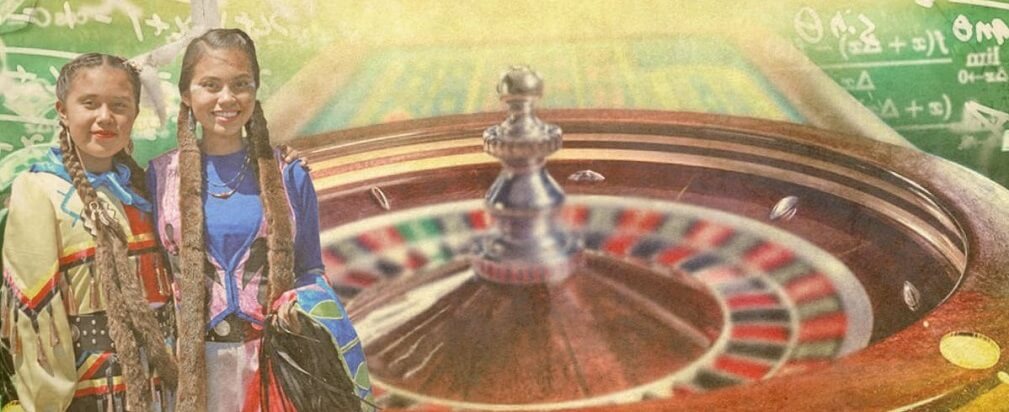
Aboriginal Youth Gambling Network
Perhaps you don’t know the history of gambling. People have always been attracted and fascinated by gambling. And this has been the case since the dawn of time. As far back as can be traced, human nature has encouraged people to gamble. Provoking chance and luck, playing the odds, betting money, taking risks… Man is a gambler!
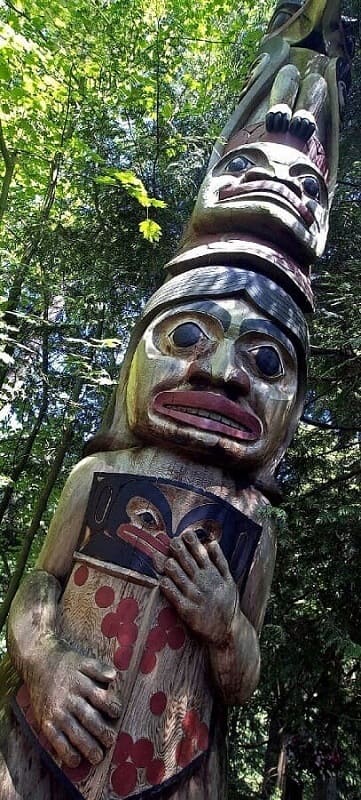
Think gambling is a fairly recent phenomenon in Canada? Think again! In fact, gambling is older than Canada. The country was born in 1867, but long before the man whose face adorns $10 notes became the Prime Minister, Aboriginal people were already trying their luck with various forms of native gambling.
In 1497, John Cabot discovered an Aboriginal population that played games of chance. Aboriginal casino games were supposed to help their physical, mental, and spiritual development. Cabot may not have known it at the time, but people have been gambling for thousands of years.
Of course, in days of Aboriginal gambling, people didn’t play with dice and cards. In Canada, sticks and stones were used instead, but the basic concept of gambling remained the same. In the 18th and 19th centuries, when European immigrants arrived in the New World, they brought with them their favourite games, such as roulette, blackjack, and baccarat: a new chapter in the history of gambling was opened. Moreover, over time the aboriginal youth network was created. It is the website that was designed for the young aborigines in order to create a community in Canada. Place where they can change with ideas, thought and different information about culture and traditions, and first native American casinos as well. Young aborigines get the opportunity to share with their opinion and discuss the “aboriginal role in society”.
Gambling has traditionally been a part of many Indigenous cultures. In Canada, native casino games such as stick and dice games, games of chance, foot racing, and horse races served as social events to bring different communities together, as well as to redistribute wealth. Current Indigenous attitudes about gambling are varied. A recent survey of urban Indigenous people found that the majority thought native Indian casino was morally wrong and that gambling harm outweighed the good. However, other communities of Indigenous people believe that gambling in moderation is a good hobby that is grounded in Indigenous tradition.
Despite these varying attitudes, the majority of Indigenous people have gambled within the last year (60%-89.8%). With the evolution of gambling into the digital age, the importance of safety and security in online gambling has become paramount. For those who choose to participate in online casino gaming, understanding and ensuring Security at Online Casino is crucial. This includes verifying the legitimacy of online casinos, ensuring they adhere to strict security protocols, and being aware of the measures taken to protect players’ personal and financial information.
As gambling continues to evolve, it’s essential to balance traditional views with modern practices of responsible and secure online gaming.
In Canada, Indigenous populations (which consist of First Nation, Inuit, and/or Métis people) are two to four times more likely to experience gambling in comparison to mainstream Canadians.
Gambling is a popular activity among Indigenous populations:
- the majority (51% – 74%) of Indigenous people in Canada gamble on a regular basis
- bingo, electronic gaming machines, instant win, and lottery are the most common forms of gambling
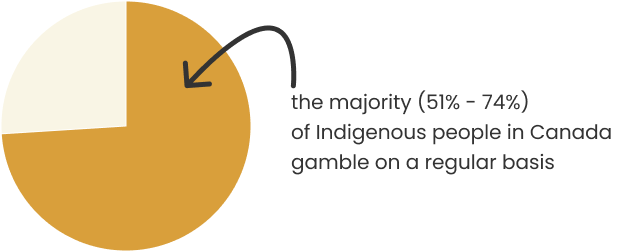
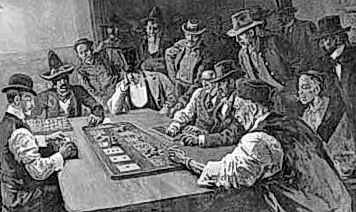
From prohibition to regulation
In 1892, the Canadian Criminal Code banned all forms of native American gambling. This did not last long, however. As time went on, ideas about gambling also changed. In 1900, bingo and raffles were allowed for charitable purposes. Ten years later, horse racing was added to the list of acceptable forms of gambling. And in 1925, fairs and exhibitions were granted the right to hold gambling-related events.
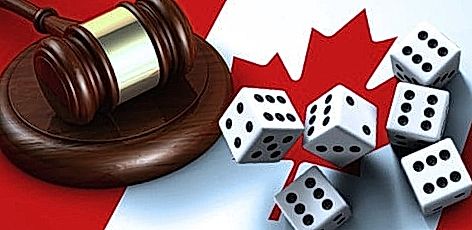
In 1969, the Canadian government realised that lotteries could be very profitable. The Criminal Code was amended to allow federal and provincial governments to conduct lotteries to fund special projects. The very first lottery was held in 1974 to raise money for the Montreal Olympics.
Over the years, the provinces were given more rights to set up lotteries, horse racing, video slot machines, and casinos. Today, you can find casinos in almost every province in Canada. They have become must-see destinations for tourists and gambling enthusiasts.
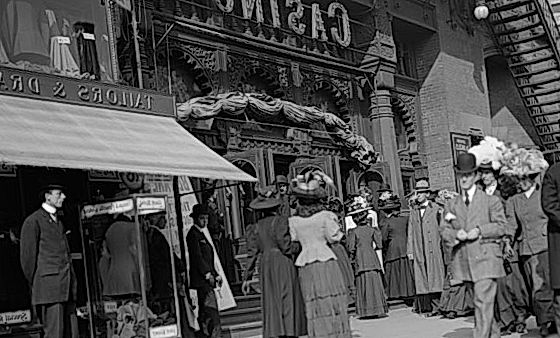
The relationship between casinos and the government in Canada varies from province to province. In some, casinos are owned and operated by the government. In others, they are also owned by the government but are run by private companies. In both cases, they are reliable establishments that generate significant revenues.
The rise of “brick and mortar” casinos in Canada
439 million: that’s how much Caesars spent renovating and rebranding its casino in Windsor, Ontario a few years ago, which is now called Caesars Windsor. The Ontario casino on the Detroit border is not bad either, and rivals the high-end casinos you can find in Sin City.
This is just one example of the tremendous growth of Canadian casinos, which have sprung up across the country to cater to the growing number of roulette and blackjack enthusiasts. In Ontario, there are some 15 casinos from Windsor to Niagara Falls, including Rama, Gananoque and Point Edward. There are also some very nice casinos in Manitoba, and British Columbia.
Quebec is not to be outdone: three casinos opened in the 1990s, which are among the best on the American continent: the Montreal casino in 1993, the Charlevoix casino in 1994, and the Lac-Leamy casino in 1996. In 2009, Mont-Tremblant also acquired its own casino, built in a beautiful natural setting. In 2021, Canadian casino lovers have a choice of dozens of high-quality establishments.
How online casino sites and poker rooms have changed the game
Today, thousands of online casino operators are accessible from Canada. Hundreds of poker rooms and thousands of online casinos do what traditional casinos are unable to do: they bring the casino to you. Finding an online casino to play at is as easy as doing a Google search. The most reputable online casino sites are regulated by international gaming commissions, and you can trust them.
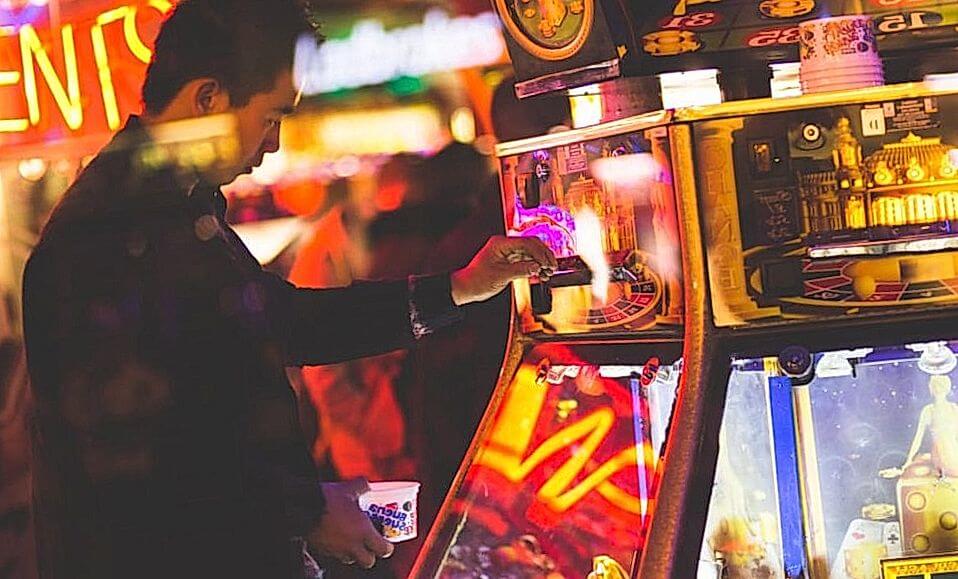
Canadians spend billions of dollars on online gambling and online casino sites that are not necessarily based in Canada pocket a large portion of the money. Some provincial governments have taken notice, and have decided to build their own real-money gambling sites. In British Columbia, the PlayNow site was created; in Quebec, the state-owned Loto-Québec launched Espacejeux, its official site, in 2010. However, these two sites have a hard time competing with foreign casinos, which often offer top promotions, a wider choice of games, and better payout rates.

More information in our casino blog
A look back at the history of the online casino
Online gaming has democratised poker, roulette, and craps, and has totally changed our perception of gambling. Let’s take poker as an example. Before the 2000s, if you told anyone you played poker for a living, you were seen as a gambling addict at best and a criminal at worst. They would immediately imagine illegal gambling rooms, or casinos in dark, smoke-filled rooms, where sordid stories happen. And if you assured people that you played in legal poker rooms in Las Vegas, they assumed you were living out of your car, trying to pay off your countless gambling debts
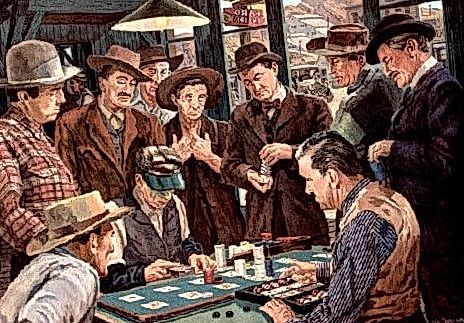
Today, if you tell someone you’ve just met that you play poker for a living, it’s a different story. You immediately think that poker players make a lot of money.
This change in thinking comes from the fact that we’ve all seen doctors, lawyers, accountants, traders, university professors, and all sorts of professionals trade their high-paying jobs for poker chips. And we now know that poker is much more than placing chips on the mat and crossing your fingers. It’s a very complex game that requires a lot of skill.